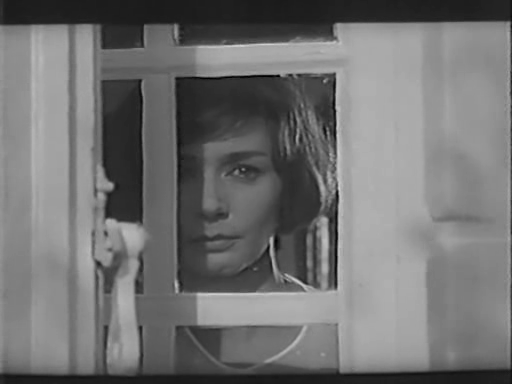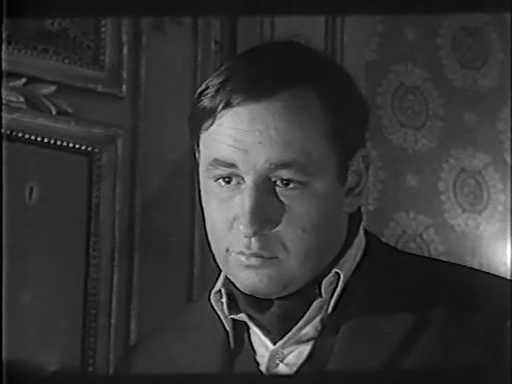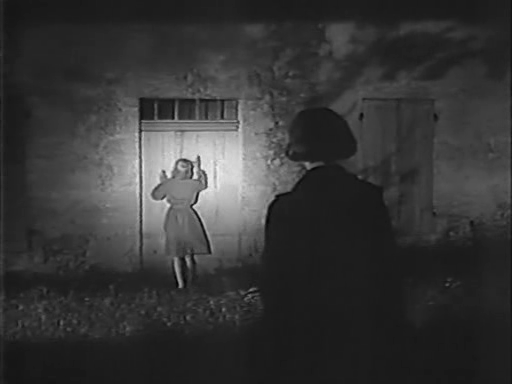|
Genres, Themes, Actors, and Directors:
- Downward Spiral
- French Films
- Flashback Films
- Georges Franju Films
- Homicidal Spouses
- Marital Problems
Review:
Georges Franju is most famous for directing the 1960 horror masterpiece Eyes Without a Face; this film (made just two years later) shares some of its predecessor’s thematic interests (a woman is forcibly isolated in her own home by a powerful man), but ultimately lacks both its compelling horror trajectory and its sense of dark humor. Indeed, the deadly serious Therese (based on a 1927 novel by Francois Mauriac) is resolutely bleak, and — despite a voiceover meant to fill us in on the details of Riva’s unhappy marriage before she attempts to murder her pompous husband — her titular protagonist remains a true feminist enigma throughout. At first, it seems that Therese married her husband simply as a veiled proxy to be near his lovely young sister (Edith Scob) — but this vaguely titillating suggestion is never developed. Instead, we come to accept that she simply made a dreadful mistake in marrying Bernard (whose socially acceptable family name she craved on some level), and has compounded this mistake by stupidly trying to murder him. The remainder of the film — as Therese becomes a virtual prisoner in her own house, resorting to simply smoking and drinking in bed — is too depressing for words. Fortunately, the film’s evocative visuals, fine central performances (Noiret is particularly good in a decidedly unsympathetic role), and memorable score by Maurice Jarre all help to make up for its downer storyline (which is apparently faithful to its source material).
Redeeming Qualities and Moments:
- Emmanuelle Riva as Therese (she won a Best Actress award at the Venice Film Festival for her work here)

- Phillipe Noiret as Bernard

- Raymond Heil and Christian Matras’ cinematography

- Maurice Jarre’s lilting, haunting score
Must See?
No, but it’s certainly worth a look if you can locate a copy.
Links:
|
One thought on “Therese Desqueyroux (1962)”
First viewing. Not a must.
It’s almost inconceivable that this was made by the same director who brought us ‘Eyes Without A Face’ two years prior; that he went from an artistic triumph to this interminably dreary exercise in pointlessness!
My guess: ‘EWAF’ had flopped at the box office. Perhaps Franju thought he might turn public acceptance around if he tackled something a little more mainstream: a woman’s picture. I’ve no idea whether ‘TD’ fared better with audiences, but it appears to have been thought highly of in certain circles. (Not only did Riva – inexplicably – win Best Actress at the Venice Festival that year, but the film itself was in competition.)
At any rate, it works like a sleeping pill: it seems to function like an average art film at first and all is somewhat normal; midway, you find yourself being overcome by its surprising ability to dull your senses.
Is “enigma” the right word to use for Therese? Her almost non-stop, vacant stare had me wondering if there was anyone home upstairs. She’s moderately interesting early on (i.e., as she muses on Scob’s purity – “She’s known such joy. And what about me?”; I don’t find even any mild erotic titillation there – just an appreciation for an innocent soul). But once Therese is back home, the second, “too depressing for words” half of the film has us wallowing right along with the old girl as she smokes, drinks and does nothing else, really.
Who can explain such a mid-movie nose-dive? All we’re thinking from there throughout is, “Merde! What is this *%#&(*!#* movie ABOUT anyway?!!”
One fave visual: Therese’s wedding day – she enters the church looking like a deranged Audrey Hepburn.